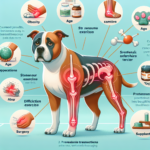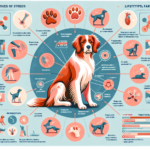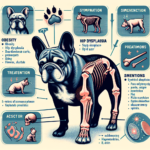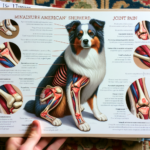Löwchen Joint Pain: Causes, Symptoms, Prevention, and Treatment
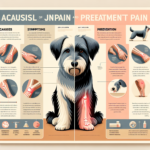
Introduction
The Löwchen, also known as the “Little Lion Dog,” is a small, charming breed with a rich history dating back to the Renaissance period. Known for their distinctive lion-like appearance, Löwchens have been depicted in various European artworks and have long been cherished as companion animals. This breed is characterized by its friendly demeanor, intelligence, and playful nature, making it a beloved pet for many families.
While Löwchens are generally healthy dogs, they are not immune to certain health issues. Common concerns include dental problems, eye conditions, and, notably, joint pain. Joint health is particularly crucial for Löwchens due to their active lifestyle and the potential genetic predispositions that can affect their mobility and quality of life.
Breed-Specific Joint Pain Risks
Genetic Predisposition
Löwchens, like many other breeds, can be genetically predisposed to joint-related issues. Conditions such as hip dysplasia, elbow dysplasia, and arthritis are not uncommon. Hip dysplasia, in particular, is a hereditary condition where the hip joint does not fit into the hip socket properly, leading to pain and mobility issues. Elbow dysplasia involves abnormal development of the elbow joint, which can also result in significant discomfort and lameness.
Age-Related Risks
As Löwchens age, the risk of developing joint pain increases. Older dogs are more susceptible to arthritis, a degenerative joint disease that causes inflammation and pain. For Löwchens, it is essential to monitor their joint health as they approach middle age, typically around 6-8 years old, to catch any early signs of joint deterioration.
Activity Level and Joint Stress
Löwchens are known for their playful and energetic nature. While regular exercise is beneficial for their overall health, excessive or high-impact activities can put undue stress on their joints. Activities such as jumping, running on hard surfaces, or engaging in strenuous play can exacerbate joint issues, especially if the dog is genetically predisposed to such conditions.
Common Symptoms of Joint Pain in Löwchen
General Symptoms
- Limping or favoring one leg
- Stiffness, especially after rest or sleep
- Reluctance to move, jump, or climb stairs
- Decreased activity or playfulness
- Visible discomfort or pain when touched
- Swelling around the joints
Breed-Specific Symptoms
In Löwchens, joint pain may manifest more subtly due to their stoic nature. Owners might notice a decrease in the dog’s usual playful behavior or a reluctance to engage in activities they once enjoyed. Additionally, Löwchens may exhibit a more pronounced limp or stiffness in the hind legs, which can be indicative of hip dysplasia or arthritis.
When to Consult a Vet
If you observe any of the above symptoms in your Löwchen, it is crucial to consult a veterinarian promptly. Early diagnosis and intervention can significantly improve the dog’s quality of life and prevent further joint deterioration. Regular veterinary check-ups are also essential for monitoring joint health and catching any issues early.
Preventive Measures for Joint Health
Exercise Recommendations
Maintaining an appropriate exercise routine is vital for the joint health of Löwchens. Low-impact activities such as walking, swimming, and gentle play are ideal. Avoid high-impact exercises like jumping or running on hard surfaces. Regular, moderate exercise helps keep the joints flexible and muscles strong, which can support joint health.
Dietary Suggestions
A balanced diet rich in essential nutrients can support joint health in Löwchens. Foods containing glucosamine, chondroitin, and omega-3 fatty acids are particularly beneficial. These nutrients help maintain cartilage health and reduce inflammation. Consider incorporating high-quality commercial dog foods formulated for joint health or consult your vet about appropriate supplements.
Weight Management
Maintaining a healthy weight is crucial for reducing joint stress in Löwchens. Excess weight can exacerbate joint pain and lead to further complications. Ensure your dog is on a balanced diet and monitor their weight regularly. Consult your veterinarian for specific dietary recommendations and portion control to keep your Löwchen at an optimal weight.
Early Screening and Monitoring
Regular veterinary check-ups and early screening for joint issues can help catch problems before they become severe. For Löwchens, consider routine X-rays or other diagnostic tests to monitor joint health, especially if there is a family history of joint problems. Early intervention can make a significant difference in managing joint pain effectively.
Treatment Options for Joint Pain
Non-Surgical Treatments
Non-surgical treatments for joint pain in Löwchens include medications, physical therapy, and lifestyle adjustments. Anti-inflammatory drugs and pain relievers can help manage symptoms. Physical therapy, including exercises and massages, can improve joint mobility and reduce pain. Lifestyle adjustments such as providing a comfortable bed and avoiding high-impact activities are also beneficial.
Surgical Options
In severe cases, surgical intervention may be necessary. Common surgeries for joint pain include hip replacement, arthroscopy, and joint fusion. These procedures can significantly improve the dog’s quality of life by reducing pain and restoring mobility. Consult with a veterinary orthopedic specialist to determine the best surgical option for your Löwchen.
Alternative Therapies
Alternative treatments such as acupuncture, hydrotherapy, and massage can also benefit Löwchens with joint pain. Acupuncture can help reduce pain and inflammation, while hydrotherapy provides low-impact exercise that strengthens muscles without stressing the joints. Regular massages can improve circulation and alleviate discomfort.
Lifestyle and Management Tips
Daily Care Routine
A daily care routine for a Löwchen with joint pain should include gentle exercise, a balanced diet, and regular monitoring of symptoms. Incorporate low-impact activities like short walks and swimming. Ensure your dog has a comfortable place to rest and avoid activities that could strain their joints.
Modifying the Home Environment
Making your home more comfortable for a dog with joint pain can significantly improve their quality of life. Consider using ramps instead of stairs, providing orthopedic beds, and ensuring that food and water bowls are at an accessible height. These modifications can reduce joint stress and make daily activities easier for your Löwchen.
Long-Term Management
Long-term management of joint pain involves regular veterinary check-ups, maintaining a healthy weight, and providing appropriate exercise and nutrition. Consistent monitoring and early intervention can help manage symptoms and improve your dog’s quality of life. Consider working with a veterinary specialist to develop a comprehensive care plan tailored to your Löwchen’s needs.
FAQs About Löwchen and Joint Pain
What are the early signs of joint pain in Löwchens?
Early signs of joint pain in Löwchens include limping, stiffness, reluctance to move, and decreased activity levels. If you notice any of these symptoms, consult your veterinarian for a thorough examination.
Can joint pain in Löwchens be prevented?
While genetic predispositions cannot be entirely prevented, maintaining a healthy weight, providing appropriate exercise, and ensuring a balanced diet can significantly reduce the risk of joint pain. Regular veterinary check-ups and early screening can also help catch issues early.
Are there specific foods that can help with joint health in Löwchens?
Yes, foods rich in glucosamine, chondroitin, and omega-3 fatty acids can support joint health. Consider high-quality commercial dog foods formulated for joint health or consult your vet about appropriate supplements.
When should I consider surgery for my Löwchen’s joint pain?
Surgery should be considered if non-surgical treatments are ineffective and the dog’s quality of life is significantly impacted. Consult with a veterinary orthopedic specialist to determine the best surgical option for your Löwchen.
What alternative therapies are effective for managing joint pain in Löwchens?
Alternative therapies such as acupuncture, hydrotherapy, and massage can be effective in managing joint pain. These treatments can reduce pain, improve mobility, and enhance overall well-being.
Conclusion
Joint pain is a significant concern for Löwchens, but with proper care and early intervention, it can be managed effectively. Maintaining a healthy weight, providing appropriate exercise, and ensuring a balanced diet are crucial for joint health. Regular veterinary check-ups and early screening can help catch issues early and improve your dog’s quality of life. By taking preventive measures and consulting your veterinarian regularly, you can ensure your Löwchen remains active, happy, and healthy.

